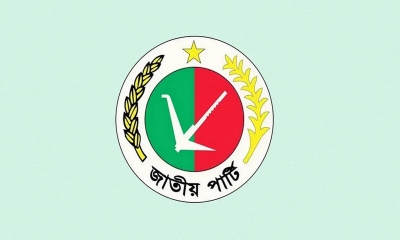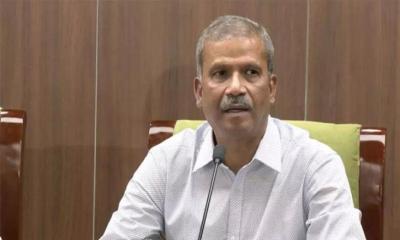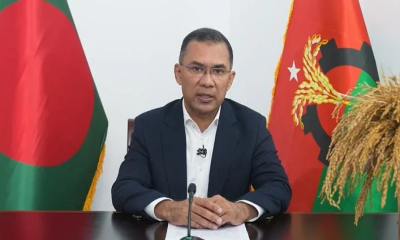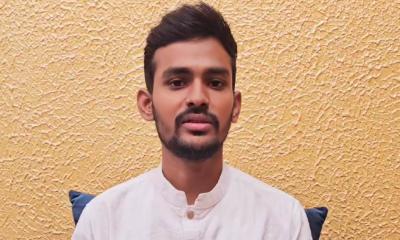When the Russians retreated from Bucha, a massive operation began to find and document the dead. BBC News joined the local police officers and bereaved families as they carried out their grim task.
Police Chief Vitaliy Lobas was sitting at a child's desk in an abandoned school in Bucha, collecting the details of the bodies.
Every few minutes, Chief Lobas, who has broad shoulders and short dark hair, and rarely uses an unnecessary word, received a call on his mobile phone, and the brief conversations went the same: a location, a few details, a phone number of a relative or friend.
Before the Russians came, Lobas was an ordinary local police chief, the head of Buchanksy District 1, who spent his days dealing with ordinary local crime and the occasional murder. Since the liberation of Bucha, he has spent his days in this abandoned school classroom, where school posters still hang on the walls, coordinating the massive operation to find the dead.
In front of Lobas on the school desk there was a map of Bucha, a once peaceful and little-known suburb of Kyiv that is now a sprawling crime scene. The area was occupied by Russian forces for a month as they attempted to assault Kyiv, and its liberation a little over a week ago has begun a slow and painful process of uncovering horrors.At Vitaliy's apartment building, Volodymyr and Serhiy had waited as long as they could for the van to arrive. It was getting dark and they needed to get home. Vitaliy's body would have to spend another night on the ground. They were too late now to make the 9pm curfew in Kyiv, but at the military checkpoints along the route they showed the death report and were waved through.
At sunrise the next morning, the father and son got up and began the drive back to Bucha. They could not wait for the van any longer, and they loaded Vitaliy's body into the back of their car and set out for a morgue in the town of Boyarka, about an hour's drive south.
Before the invasion, the staff at the Boyarka morgue were used to handling about three bodies a day, the vast majority of them deaths from natural causes. Since Bucha was liberated, they have been autopsying about 50 bodies a day, 80% of which were violent deaths, said Semen Petrovych, 39, who has been the forensic expert there for 16 years.
Each time the phone rang, Lobas consulted the map in front of him, and on a plain piece of paper he wrote down the necessary information in neat handwriting, one line per body. By mid-morning, he had filled one side of A4 and moved on to the reverse. The previous day there had been 64 bodies, he said. The day before, 37. He did not know how many there would be that day, but he was expecting the number to jump by around 40 because a mass grave was being dug up nearby. Lobas is only in charge of one part of this region, and many more bodies are being found outside his jurisdiction.
Lobas paused occasionally to go to the school playground for a cigarette, but even these moments were interrupted by calls about bodies or problems relating to the collection of bodies. It was raining in Bucha, and one of the vans that ferried corpses to the morgue had become stuck in the mud. A tractor needed to be found quickly, because there was a limited number of vans and a large number of bodies. Lobas generally delegates the field work to his deputies, but in cases of particularly grave crimes he goes himself.
"When people have been shot in the head with their hands tied behind their back, for example, I will go," he said.
"When the bodies have been burned I also go."
About mid-morning, a call came in from Dmytro Kushnir, a 24-year-old police deputy in one of Lobas's units, to log a body that had been reported behind an apartment building on the outskirts of Bucha.
When Kushnir arrived at the building, which stood alone on an otherwise undeveloped green area on the edge of woodland, he found two men behind the building at the place where the property line met the woods. They were wearing blue surgical gloves and standing over the partially decomposed body of a man who appeared to have been shot in the back of the head. The body lay on a stained white duvet decorated with red flowers and was surrounded by empty bottles of beer and spirits. The blue surgical gloves initially gave the men the appearance of medical officials, but they introduced themselves as Volodymyr and Serhiy Brezhnev, the dead man's father and brother. Lying on the blanket was Vitaliy Brezhnev, a 30-year-old former cook who, until the Russians arrived, lived a peaceful life with his girlfriend on the sixth floor of the apartment building that now towered over his corpse.
Volodymyr and Serhiy had lost contact with Vitaliy a month earlier, when the Russians seized control of Bucha and communications went down. It was impossible to enter the suburb to check his building, so they searched for him for a month online, scouring social media in vain for evidence that he was alive.
When the Russians finally retreated, a little over a week ago, Serhiy got a call from Vitaliy's girlfriend and she told them the story. The Russians had assaulted the apartment building and blasted their way into every apartment with a shotgun, she said, demanding people handed over their SIM cards and keys. They interrogated her and Vitaliy in separate rooms, beat them, and shot their dog, she said. Then they took her down to the basement with a group of other residents and bolted the door, but took Vitaliy away separately and told her she wouldn't see him again, and she didn't.
As soon as the Ukrainian army declared Bucha safe to re-enter, Volodymyr and Serhiy set out for the apartment building. Inside, they found blood smeared on the floor in the stairwells and personal photographs from people's apartments strewn around. On every door you could see the holes from the shotgun blasts - sometimes one, sometimes four or five. Doors with steel plates had been crowbarred. On one wooden door, where the lock hadn't given way to repeated shots, the Russian soldiers appeared to have become frustrated and blown a hole right through the middle of the door into the apartment. Behind another door, it was clear the homeowners had pushed a heavy table up against the frame in a failed attempt to keep the invaders out.
When Volodymyr and Serhiy reached the sixth floor they saw that the shotgun had been used on the door of Apartment 83. A rank odour came from inside. The Russians had trashed the apartment and pried open the air vents and even the bathroom drain, looking for money, Serhiy guessed. When he entered Vitaliy's bedroom he suffered the first of several blows to his hopes of finding his brother alive. On the pillow there was a deep blood stain and blood was sprayed up the walls behind the bed. Among the mess on the floor there were two 7.62mm bullet casings - the calibre used by the Russian army in their rifles.
"You could see that a man had been killed here," Serhiy said. "But there was no body."
So Volodymyr and Serhiy began to search for Vitaliy, knowing that their search was now probably for a body and not a son and brother they could hold again in their arms. Serhiy was carrying a passport photograph of Vitaliy. "We searched and searched," he said, "and at first we were looking for his face."
Behind the building, next to the woods, they found what appeared to be a shallow grave, and they began to dig. It took time to exhume the remains there. First they saw a flower-patterned duvet they didn't recognise and their hearts found some hope. But when they brought the body up they saw that inside the duvet there was a curtain from Vitaliy's apartment. Then they saw the dead man's shoes and thought they recognised them. The light was fading by that point and they had to be home before curfew, so they covered the body with the sheet. Embers of hope remained.
"Today was the final touch," Serhiy said, the following day, looking down at the body. "Today we took his shoes off and we saw his feet."
Because Vitaliy's feet had been inside socks and shoes they were better preserved than the rest of his body after a month in the earth.
"We saw the shape of his feet," Volodymyr said.
"Then we looked at the shape of the nose and the hands," Serhiy said. "And we knew it was our bloodline."
Volodymyr had purchased the small apartment in Bucha two years earlier - an investment in his son's future. Vitaliy had been a cook in a restaurant in Kyiv, until the pandemic hit and he was laid off. He did some work in construction and was looking for something more stable, but he had a girlfriend he loved and a dog, and now an apartment in a nice neighbourhood. He loved to fish and hunt, and forage for mushrooms in his spare time, and cook.
"He was living a peaceful life here," Serhiy said. "He was a normal guy, that's all, a kind-hearted man. He gave his all."
"He was a son and a brother," Volodymyr said, trying to hold back his tears.
At the front of the apartment building, Officer Kushnir was filling out his police report. Volodymyr went to his car and took two small pieces of cardboard and wrote his name and phone number and Vitaliy's name and address on each. Then he asked some neighbours for clear tape to cover the ink, because the rain was beginning to fall harder on Bucha, and he went back to the body, without surgical gloves this time, to tie one piece of card to Vitaliy's ankle and one to his wrist.
"I do not want to lose my son," he said.
Officer Kushnir finished his report and called it in. Chief Lobas would arrange for the van that collected the bodies to stop by. Volodymyr and Serhiy took shelter from the rain and waited for the van to arrive.
As the day wore on, Chief Lobas's classroom command post got busier. Officers came and went, filing crime scene reports. The list on Lobas's desk got longer and his phone kept ringing.
A dead woman had been found in a well next to a destroyed column of Russian tanks. There was a body on the ninth floor of an apartment building. A driver of one of the vans called to say he couldn't find the body he had been sent to collect. A woman came in to the classroom in person to report that her neighbour was dead. "I understand everything," Lobas told her, keen to move on. "We will try to collect him today." Lobas's father called. "Dad, I am too busy," he said. "Everything is OK."
Two of Bucha district's police departments had been destroyed in the Russian assault and Lobas was struggling for resources. There were not enough body bags. His team had also been whittled down over the preceding days to those who had shown themselves capable of withstanding this new work. "Those who were weak went at the very beginning," he said. There was little room for sentiment amid the scale of the task.
Lobas received another call. "Nine?" he said. "Where?"
The call was coming from a unit in a neighbouring police department. Nine bodies were buried in a field nearby. Lobas hung up and dialled one of his mobile units. "The team there is exhausted and they have no body bags left," he said. "They have been collecting bodies all day. Please go and help them now. Find body bags and help them to pack the bodies."
The nine graves were laid out neatly in a row at the edge of the field, behind a corrugated fence at the end of a dirt track. The dead had been buried by their neighbours during the Russian occupation and now they were being exhumed by their neighbours, with the help of the police.
"Some of these people died because they could not get medicine and some were killed by Russians," said Gennadiy, a 45-year-old Ukrainian from one of the buildings by the field, who had helped to bury the the bodies and was doing the most work now to bring them up.
"These were our neighbours," Gennadiy said, a look of deep anger set in his face. "Here is Uncle Tolya from the building next door and a neighbour of his. Here is another person I knew from the next building. This man has a bullet wound, we didn't know him but we found a passport on his body. This elderly woman had severe diabetes and we tried to take her out of Bucha but there was no green corridor, so she died. This man went for a walk with his dog and didn't come back. We are not pathologists but it looks like he was shot."
At Vitaliy's apartment building, Volodymyr and Serhiy had waited as long as they could for the van to arrive. It was getting dark and they needed to get home. Vitaliy's body would have to spend another night on the ground. They were too late now to make the 9pm curfew in Kyiv, but at the military checkpoints along the route they showed the death report and were waved through.
At sunrise the next morning, the father and son got up and began the drive back to Bucha. They could not wait for the van any longer, and they loaded Vitaliy's body into the back of their car and set out for a morgue in the town of Boyarka, about an hour's drive south.
Before the invasion, the staff at the Boyarka morgue were used to handling about three bodies a day, the vast majority of them deaths from natural causes. Since Bucha was liberated, they have been autopsying about 50 bodies a day, 80% of which were violent deaths, said Semen Petrovych, 39, who has been the forensic expert there for 16 years.
The morgue, a small outbuilding at the back of a hospital on the edge of town, where Boyarka meets the forest, had just acquired two rented refrigerator trucks and both were full of bodies. Body bags lay on the floor by the trucks and against the fence nearby and either side of the entrance to the morgue.
"There are not enough staff and there is not enough room," said Petrovych, the forensic expert. "Even if we had more people, where would we put the bodies?"
Normally he would do a careful autopsy on every body and print a death certificate. "Now we just dissect them quickly and write something simple by hand," he said.
Volodymyr and Serhiy were not alone in bringing a body themselves. Private cars pulled up to the morgue and bodies were brought out wrapped in blankets and rugs. Relatives and friends came searching. Tatiana Zhylenko was looking for the body of the father of a friend who was abroad. "He had his passport on his chest," she told the staff. Oleksander Zakovorotnyi came for his father-in-law, who, when the Russians cut the gas supply in the depth of winter, rigged up a makeshift heater using a gas cylinder, but fell asleep and was poisoned when the flame went out.
Volodymyr and Serhiy waited outside until they were called in to identify Vitaliy. They stood inside the cramped, low-ceilinged morgue, where there were bodies on the floor and on every gurney and the smell was overpowering. They had to squeeze between two gurneys, beside an open corpse, to get close to Vitaliy's body, and they searched it for scars they could remember. They repeated to the pathologist that they thought they recognised his feet. Volodymyr looked away and looked back. He was wrestling with doubt and hope.
Afterwards, he walked behind the refrigerator truck and stood alone sobbing, his chest heaving with his tears. Vitaliy was brought out, his body bag tagged number 552 - the 552nd body processed by this small morgue since the beginning of the year, nearly double the figure in a normal year, the extra hundreds all condensed into one week.
The police took fingerprints and told Volodymyr and Serhiy that the formal identification would take around a month, because of the backlog, but otherwise they were free to take him to the cemetery to be buried.
Rather than wait for the body van, Volodymyr and Serhiy lifted Vitaliy carefully again into the back of their car and drove him the hour or so back to Bucha, past the rows of destroyed homes and places where bodies had laid in the streets for weeks. At the cemetery, which was already full, new graves were being dug outside the boundary fence on a thin strip of earth along the side of the road. A priest intoned the funeral rites over a coffin. The mother of the dead man wailed. In the near distance, past the line of the forest, enormous booms sounded as unexploded ordnance was detonated. Volodymyr and Serhiy drove into the cemetery and unloaded Vitaliy next to a long line of body bags arrayed on the ground.
Because Vitaliy had already been identified and would be buried here in Bucha, he was placed into a simple wooden casket with maroon fabric and afforded the small dignity of resting inside a brick building on the cemetery grounds. He would be buried in two days' time.
Volodymyr and Serhiy left the cemetery and Volodymyr decided that, even though it was far from their home in Kyiv, he would buy a plot there for his wife Lily, Vitaliy's mother, who was suffering from end-stage cancer, so that when the time came she would be near to her son.
Two days later, on a bright, cold morning in Bucha, the family gathered at the cemetery. Once again, Volodymyr and Serhiy took the lead and went inside the brick building to prepare to carry the casket. Lily sat outside on a bench, smoking a cigarette, alone among the body bags. The casket was carried to a stone plinth and the family gathered around it while the priest read the funeral rites and two elderly women from the church held the incense burner and sang. Then Vitaliy was taken by the van marked 200 to one of the fresh graves along the roadside outside the cemetery and laid to rest. Volodymyr was still wrestling with doubt. "I am still hoping that the fingerprints will show this was not my son," he said.
Later that day, back at the abandoned school in Bucha, Chief Lobas was sitting at his schooldesk, listening carefully to a man who had come in person to ask for help finding a relative he heard was in a mass grave. The man had been to the large mass grave by the church, he said, but they redirected him to the police. He wanted to give Chief Lobas a picture, but Lobas explained that this was not the way things were done. "We cannot go around opening all the body bags holding this picture," he said. "Do you understand? It would waste too much time."
Lobas explained that they had to begin burying the unidentified bodies, because there was not enough space at the morgues. But he assured the man that fingerprints and photographs were being taken and would be kept. "Even though the people themselves are buried the information remains," he said. "The photographs remain."
The calls kept coming in - a body on Yablunska Street, another body next to a school. "We have cleared these two addresses already, give us more to collect," Lobas said. He saw a window for a cigarette and went to the playground. The number of bodies each day was beginning to fall, he said. He thought that the job might be finished soon. "There are no weekends here now, we will keep working until the collection of the bodies is complete," he said. He flicked his cigarette away. His phone was ringing.




-20260216055149.webp)

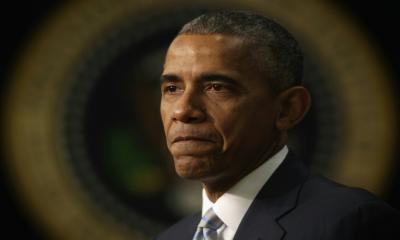
-20260215061522.webp)
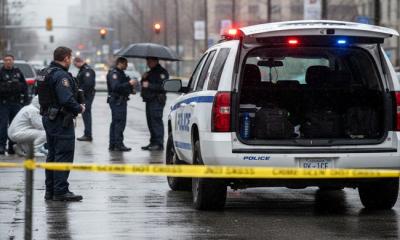
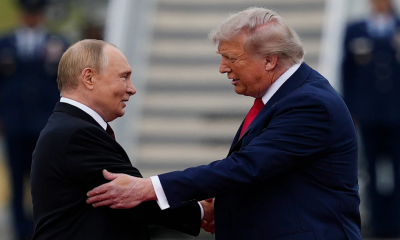
-20260216115008.webp)






